4 Benefits Of Spearmint Tea For Acne And Its Side Effects
Science explains why sipping this beverage may help manage the breakouts.
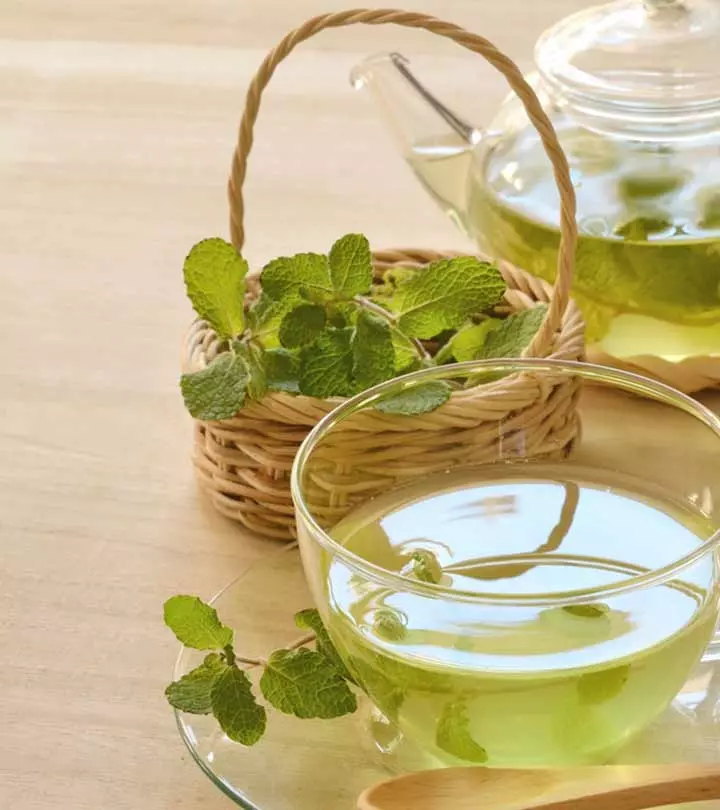
Image: ShutterStock
If you have been battling acne for a long time, we know your pain. Would you believe it if we said that you could use spearmint tea for acne treatment? The benefits of spearmint tea for the skin and acne relief are all over social media. To find out the truth, we decided to investigate this claim further. So, before you pour yourself a cup of spearmint tea, read this article to learn how it can help treat acne.
In This Article
Spearmint Tea For Acne: What Does Science Say?
Spearmint tea is not directly linked to acne reduction.
However, its anti-androgeni Male sex hormones responsible for developing male sexual characteristics and maintaining the reproductive system. properties may help control hormonal acne.
Spearmint tea is a common herbal remedy or self-care ingredient in the Middle East for hirsutism in females. It is a natural anti-androgen and can reduce testosterone levels in the body. Androgens like testosterone are linked to the overproduction of sebumi An oily substance produced by the sebaceous glands that act as a protective layer on the skin. (1), (2), (3). Excess sebum clogs the skin pores, trapping dirt and bacteria, and causes acne. However, the benefits of using this mint for the skin are plenty. It helps soothe, hydrate, tone, and provide anti-aging benefits to the skin.
According to research, about 9.4% of people worldwide suffer from acne vulgaris, which is most prevalent among adolescents. In all ethnic groupings, it affects more than 90% of males and 80% of females.
Though testosterone is a male sex hormone, the ovaries may produce it in small amounts. Drinking spearmint tea reduces testosterone levels, thus regulating excess sebum production. This property may help reduce pimples, especially if it is caused by hormonal fluctuations.
Further research is required to establish the efficacy of spearmint tea for acne. Its acne-reducing benefits are primarily anecdotal, and many people have tried this remedy and found it to be effective.
Haley, a Youtuber, drank spearmint tea for acne and shared the results in one of her vlogs. She states, “My skin has improved, like, 45 to 50 percent. It [the tea] has definitely reduced the amount of breakouts that I get, their frequency and intensity so I get breakouts less and less often (i).”
However, note that spearmint tea may not work for hormonal acne caused by hormones like insulin.
Spearmint tea is one of the most potent of all mints and is known for other benefits. Let us take a look at them.
Key Takeaways
- Spearmint is a natural anti-androgen that can reduce testosterone levels in the body.
- Drinking spearmint tea may help reduce acne as it regulates excess sebum production.
- It is best to avoid spearmint tea if you are pregnant, anemic, or have kidney or liver issues.
Other Benefits Of Spearmint Tea
1. May Help With Hirsutism
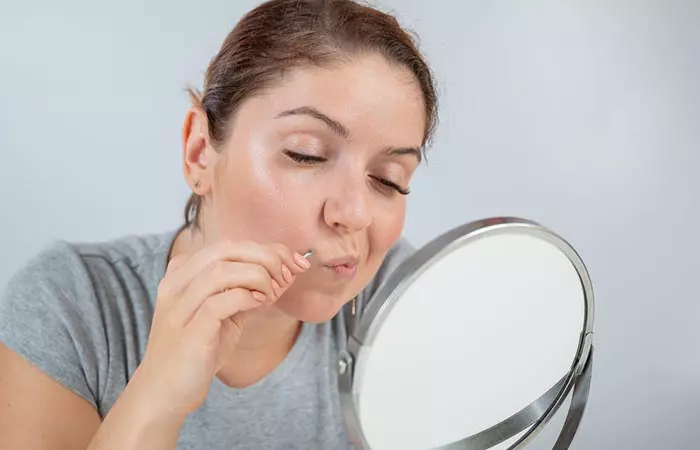
Hirsutism results from excess male hormones and causes excessive thick and coarse hair growth in women. Multiple reasons may cause it – one of them is polycystic ovary syndrome or PCOS. A study found that drinking spearmint tea helped reduce hirsutism in women and could be used as a potential natural treatment for this condition and PCOS (3).
2. May Help Manage Knee Osteoarthritis Symptoms
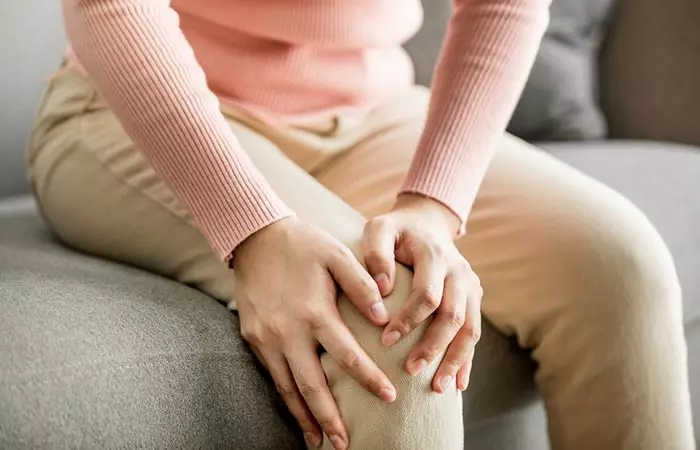
Knee osteoarthritis is caused by degeneration of articular cartilage and is a non-curable condition. The treatments for it revolve primarily around pain management.
High-rosmarinic acid (rosA) spearmint tea has shown promising results in reducing the knee pain associated with the condition (4). This is a special variety of spearmint tea and is not the same as the commercially available variant.
3. May Help With Stress And Insomnia
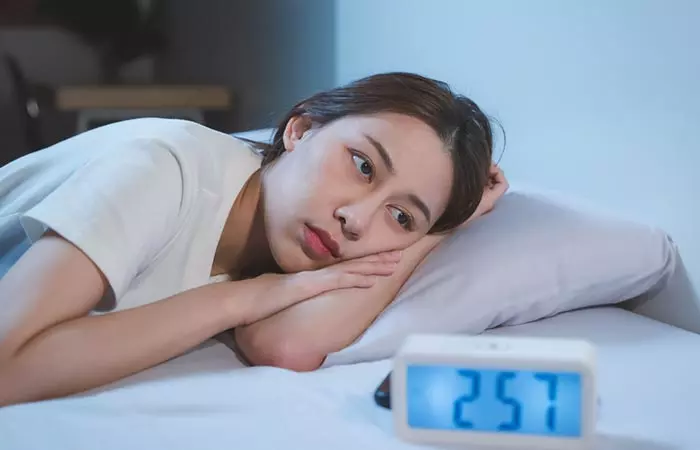
Columbian people use spearmint tea for mental wellness, stress relief and to reduce insomnia. A rat study found that spearmint had hypnotic and sedative effects due to phenolic compounds, such as flavonoids and tannins. Spearmint tea can be used for relieving anxiety (5).
4. Rich In Antioxidants
Antioxidants help reduce oxidative stressi Cell damage triggered by an imbalance between antioxidants and free radicals in the body, causing inflammation and diseases. caused by harmful free radicals.
They cause inflammation and drive the process of acne on your skin. High-rosA spearmint has anti-inflammatory and antioxidant properties (4). Moreover, spearmint tea also has phenolic compounds, like flavonoids and tannins, that can keep your skin healthy and free of blemishes.
Spearmint tea is often compared with peppermint tea. However, the two have distinct properties. Learn more about them in the next section.
Spearmint Tea Vs. Peppermint Tea
Spearmint and peppermint teas share similar health benefits but have different flavors and aromas. Spearmint tea has a mild, sweet taste with subtle menthol notes. It is often preferred for its gentle, soothing properties that help you sleep better (5). It is also known to aid digestion and alleviate stress. Peppermint tea, with its stronger menthol flavor, is renowned for its cooling effect and antimicrobial and antiviral properties (6). It also may help ease gastrointestinal health (6).
Both teas are suitable for consumption at any time of the day. When choosing between the two, consider your preference for a sweeter, milder flavor (spearmint) or a more intense, cooling taste (peppermint).
Well, when it comes to spearmint tea, it is not all rosy. Adding the tea to your daily routine can cause a few side effects. Understand them before you decide to give it a go.
Side Effects Of Spearmint Tea
1. Reduces Testosterone
Spearmint tea reduces testosterone levels. Men need a healthy amount of testosterone to maintain their energy, libido, and overall mood. Hence, spearmint tea may not be the best solution for them.
2. Low Iron Absorption
Spearmint tea has tannins that can hinder the absorption of iron in your body (7). Thus, if you are anemic or have borderline iron levels, it is best to steer clear of spearmint tea.
3. May Irritate The Mucosal Lining
Spearmint tea aids digestion and does not cause heartburn. However, excessive intake may irritate the mucosal lining in your stomach (8). Hence, limit your intake to two cups daily.
4. Kidney And Liver Damage
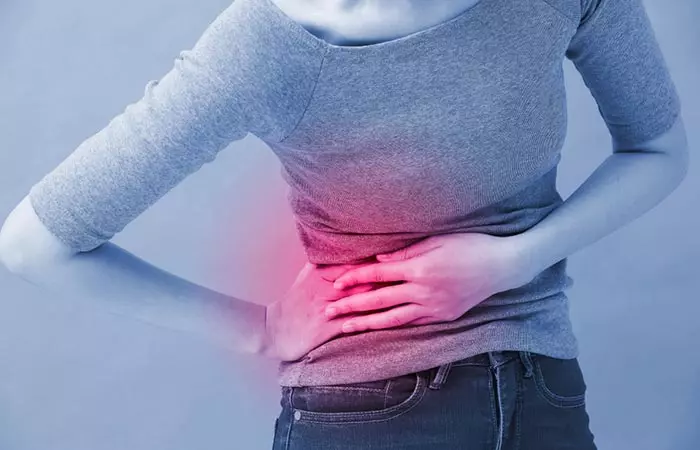
If you have any kidney or liver issues, it is best to avoid spearmint tea. Excessive intake of spearmint tea can worsen your condition (9).
5. May Damage The Uterus During Pregnancy
If you are pregnant, do not drink spearmint tea as it can damage the uterus lining. While there is not much evidence for spearmint tea’s side effects on breastfeeding women, it is better to avoid it (9).
6. May Cause Allergic Reactions
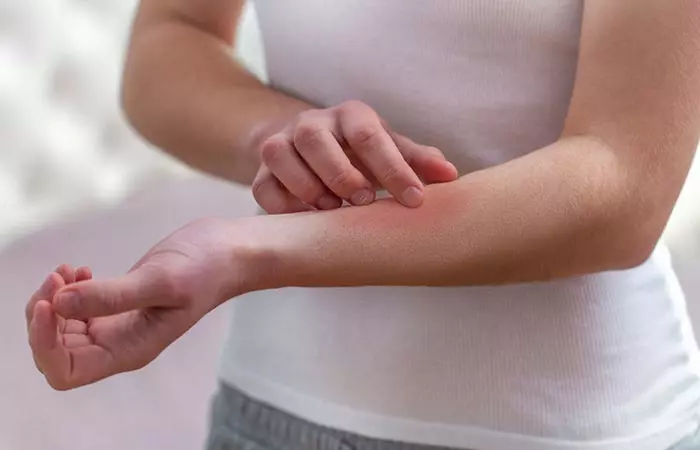
Avoid spearmint if you are allergic to it. Drinking spearmint may cause rashes, hives, skin irritation, mouth and tongue swelling, itchy throat, abdominal pain, diarrhea, and vomiting.
Let us see the quantity of spearmint tea that is safe for consumption.
What Is The Advisable Quantity Of Spearmint Tea?
 Quick Tip
Quick TipSince spearmint tea is natural, you can safely have about 2-3 cups of it daily. If you have any health issues or are taking any medication, consult a doctor before consuming this tea for safety purposes.
Infographic: How To Prepare Spearmint Tea
Spearmint tea is a natural drink that is free of caffeine and calories. Drinking it regularly may help solve your acne issues, stress, and insomnia. Since it is a herbal tea, you can have 2-3 cups daily at any time of the day. You may include it in your diet to reap its benefits.
Check out the infographic below to learn how to prepare spearmint tea at home. Illustration: StyleCraze Design Team
 Quick Tip
Quick TipSpearmint tea is not a cure-all for acne. However, it has the potential to minimize hormonal acne by bringing about hormonal balance and lowering testosterone levels and regulating sebum production. Of course, it is advisable to follow your doctor’s advice and the treatment approach suggested for hormonal acne. Nevertheless, if you want to try spearmint tea for acne management, you can go ahead. It has other health benefits and may help with stress and insomnia. Anecdotal evidence also suggests its ability to improve skin complexion. However, if you have anemia or low iron levels, it is advisable to avoid this tea or consult a doctor before consuming it.
Frequently Asked Questions
Is green tea or spearmint tea better for acne?
Both teas are good for treating acne. While spearmint tea has anti-androgen properties that may control hormonal acne, green tea’s anti-inflammatory and antioxidant properties help treat acne lesions. However, the topical application of green tea for acne is more effective than oral intake (8).
Can spearmint tea cause breakouts?
No, spearmint tea does not cause acne breakouts.
Does the temperature or brewing time of spearmint tea impact its effectiveness for acne?
No, temperature and brewing time do not affect the effectiveness of spearmint tea for acne. It is generally made by boiling water and spearmint for 10 minutes for perfect flavor.
Can spearmint tea be consumed in addition to other herbal teas or beverages?
Yes, spearmint tea can be consumed in addition to other herbal teas or beverages. Anecdotally it does not cross-react with any of the herbs.
Can spearmint tea be used to improve other skin conditions, such as rosacea or eczema?
Yes, anecdotal evidence suggests that spearmint tea can help in managing skin conditions such as rosacea and eczema as it is rich in antioxidants and can protect from free radical damage.
Is chamomile and spearmint tea good for acne?
Yes, chamomile and spearmint tea are good for acne. Anecdotal evidence suggests that chamomile has soothing and anti-inflammatory properties and when combined with spearmint, it can help manage acne effectively.
Can spearmint tea be combined with other acne treatments?
Yes, you can drink spearmint tea apart from using other acne treatments, like creams or herbal remedies. Just keep an eye on how your skin reacts and check with a doctor to avoid any unwanted effects.
Illustration: Benefits Of Spearmint Tea For Acne And Its Side Effects
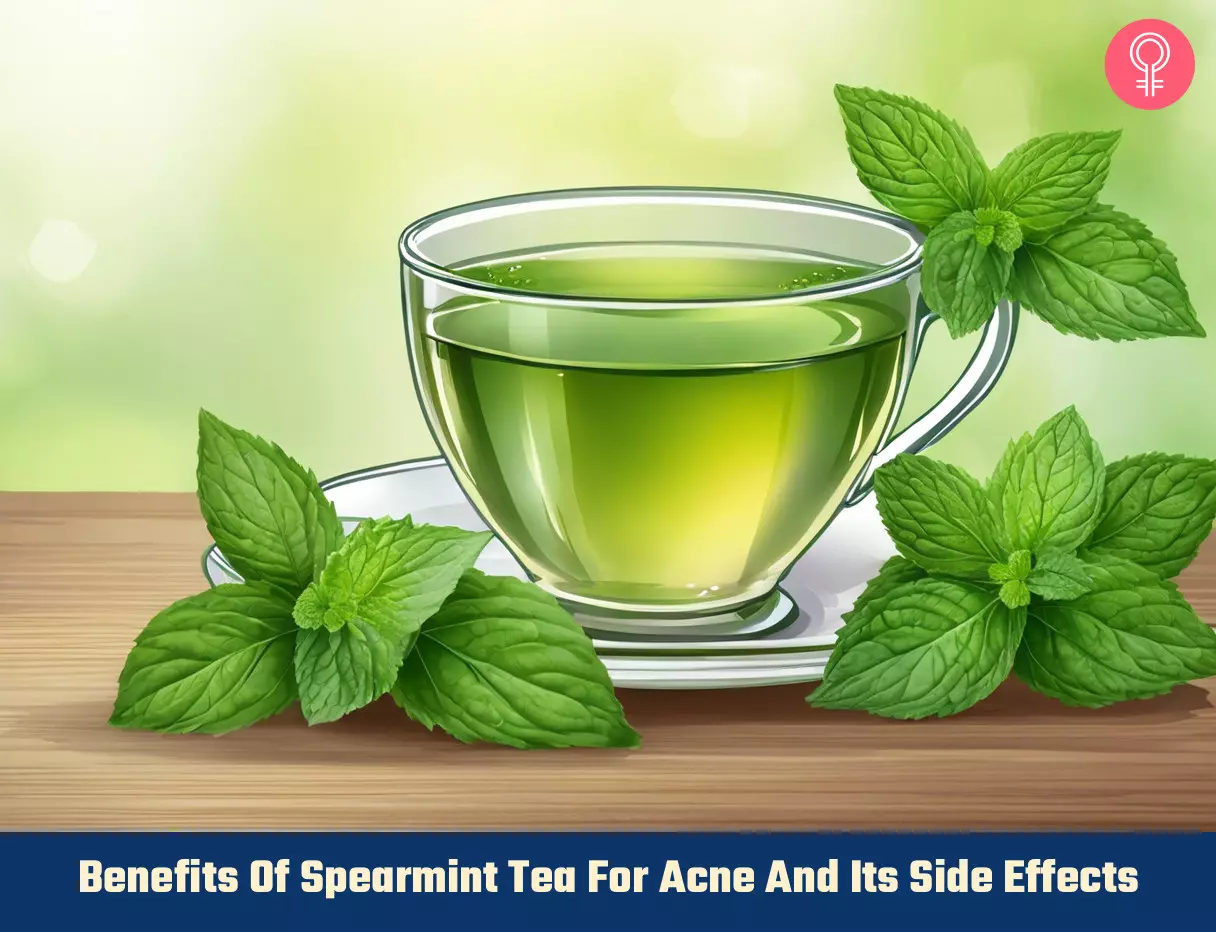
Image: Stable Diffusion/StyleCraze Design Team
Spearmint tea is a delicious and healthy beverage. Learn about its amazing benefits, such as improved digestion, reduced stress, and more from this informative video.
Personal Experience: Source
StyleCraze's articles are interwoven with authentic personal narratives that provide depth and resonance to our content. Below are the sources of the personal accounts referenced in this article.
(i). I drank spearmint tea for 4 months to clear my cystic hormonal acnehttps://www.youtube.com/watch?v=_XCbUGDspLE
References
Articles on StyleCraze are backed by verified information from peer-reviewed and academic research papers, reputed organizations, research institutions, and medical associations to ensure accuracy and relevance. Read our editorial policy to learn more.
- Hormonal treatment of acne vulgaris: an update
https://www.ncbi.nlm.nih.gov/pmc/articles/PMC5015761/ - An Update on Plant Derived Anti-Androgens
https://www.ncbi.nlm.nih.gov/pmc/articles/PMC3693613/ - Spearmint herbal tea has significant anti-androgen effects in polycystic ovarian syndrome. A randomized controlled trial
https://pubmed.ncbi.nlm.nih.gov/19585478/ - High-Rosmarinic Acid Spearmint Tea in the Management of Knee Osteoarthritis Symptoms
https://www.ncbi.nlm.nih.gov/pmc/articles/PMC4259186/ - Pharmacological Evaluation of Mentha spicata L. and Plantago major L., Medicinal Plants Used to Treat Anxiety and Insomnia in Colombian Caribbean Coast
https://pubmed.ncbi.nlm.nih.gov/30158996/ - A review of the bioactivity and potential health benefits of peppermint tea (Mentha piperita L.)
https://pubmed.ncbi.nlm.nih.gov/16767798/ - Iron requirements and bioavailability of dietary iron
https://pubmed.ncbi.nlm.nih.gov/6315480/ - Lack of effect of spearmint on lower oesophageal sphincter function and acid reflux in healthy volunteers
https://pubmed.ncbi.nlm.nih.gov/10383511/ - Spearmint
https://medlineplus.gov/druginfo/natural/845.html
Read full bio of Dr. Archna Agrawal
Read full bio of Ramona Sinha
Read full bio of Anjali Sayee
Read full bio of Shiboli Chakraborti





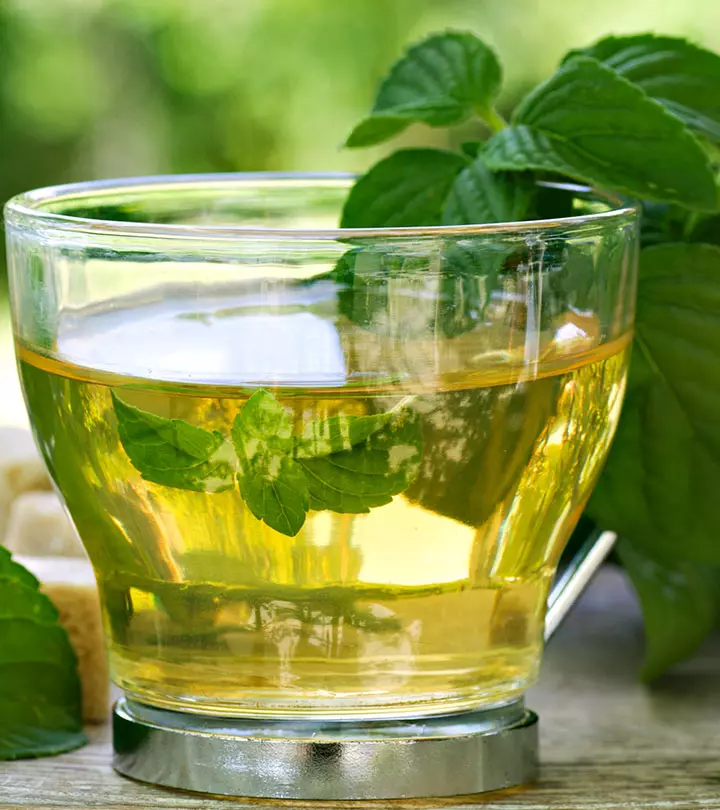
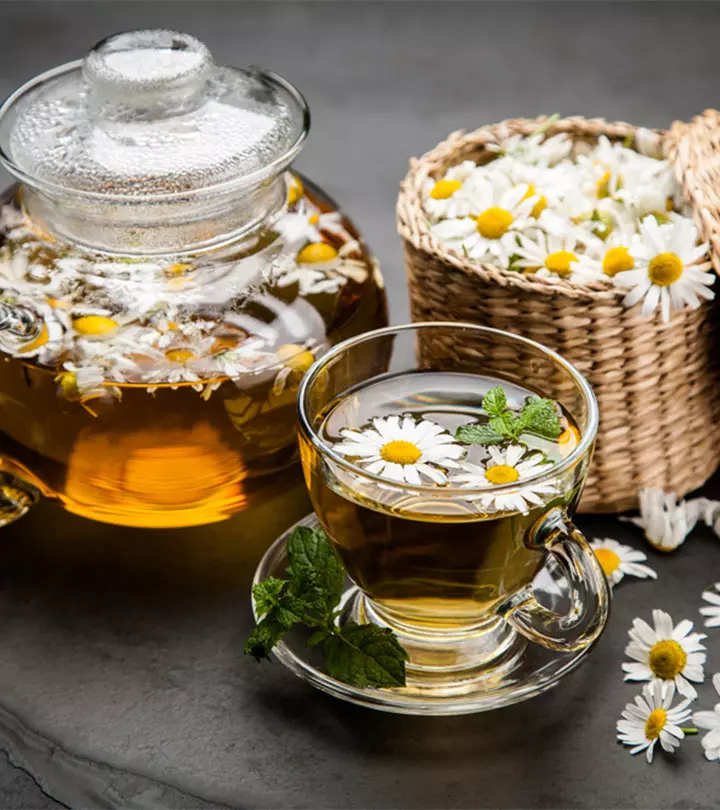
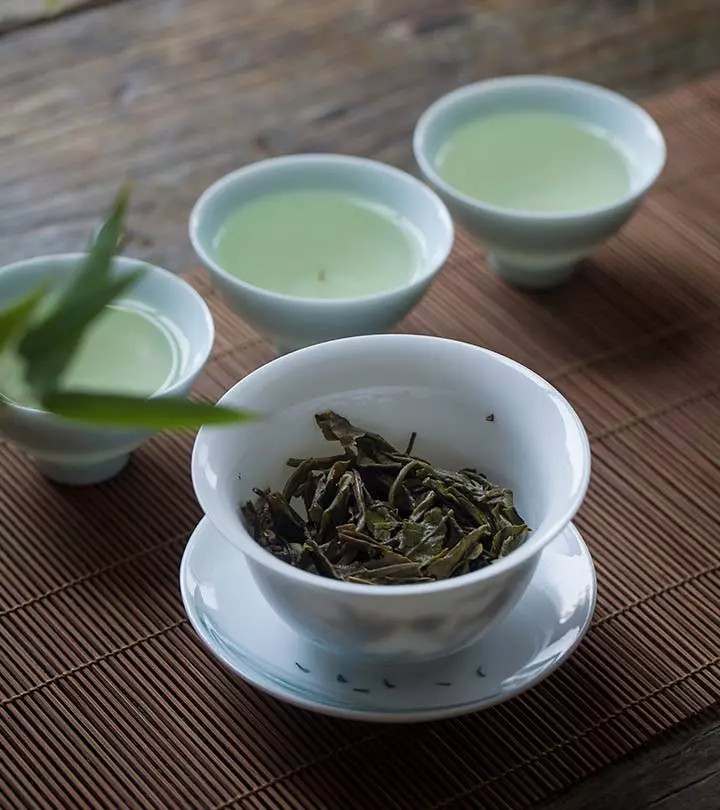
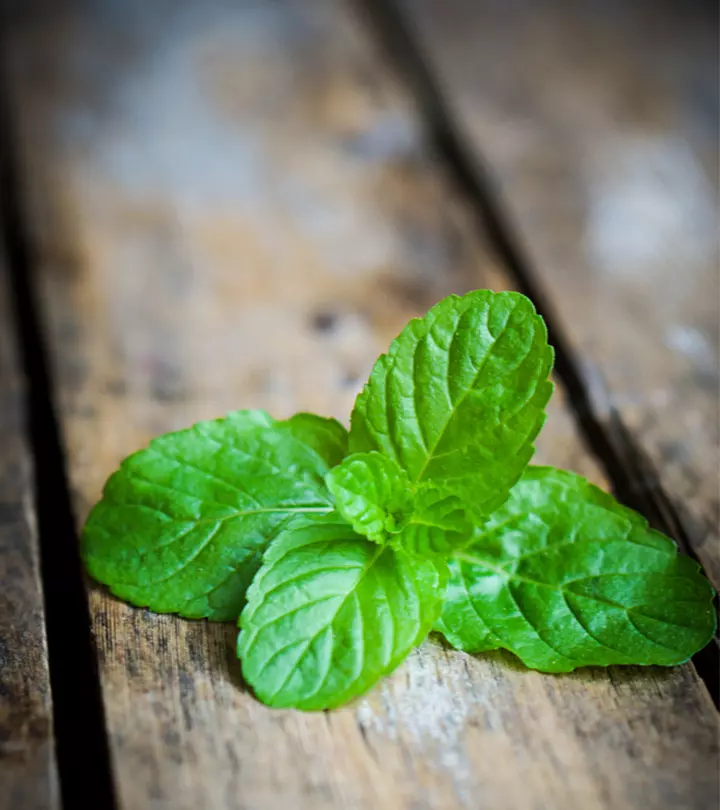
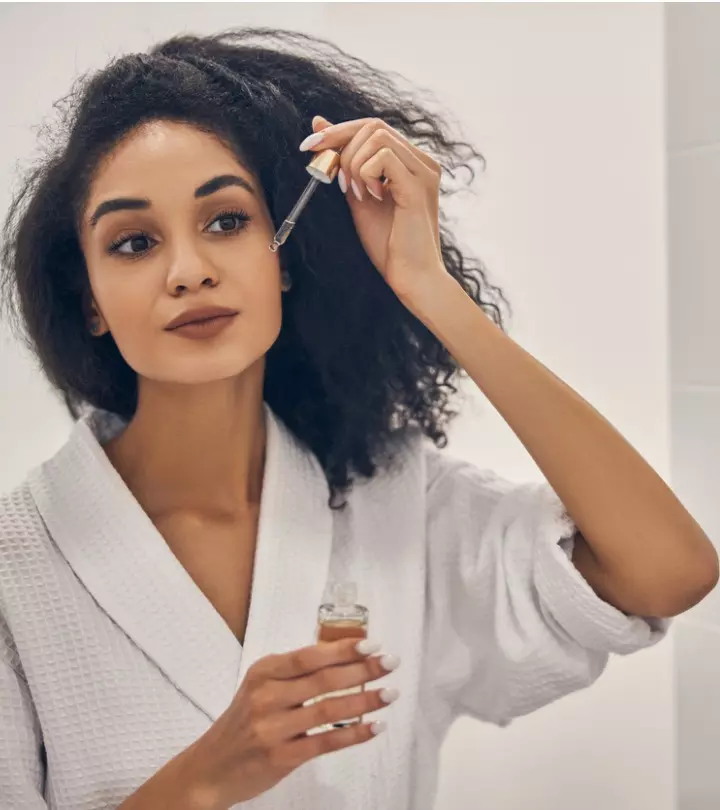
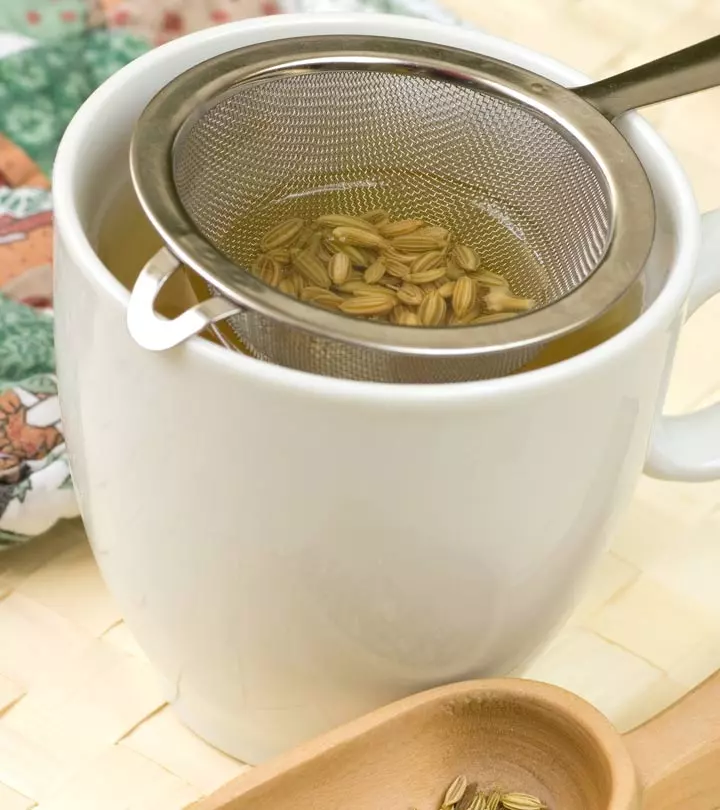
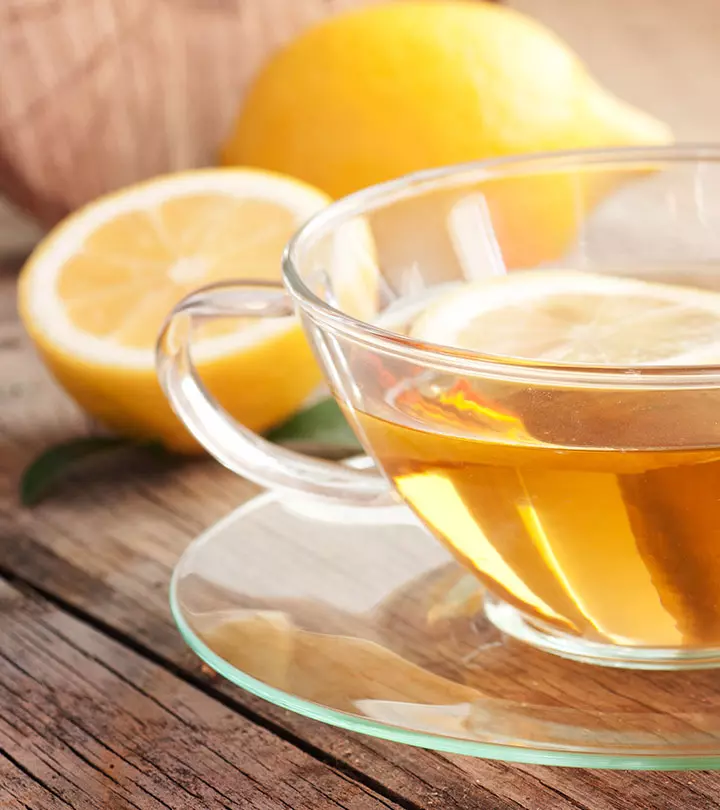
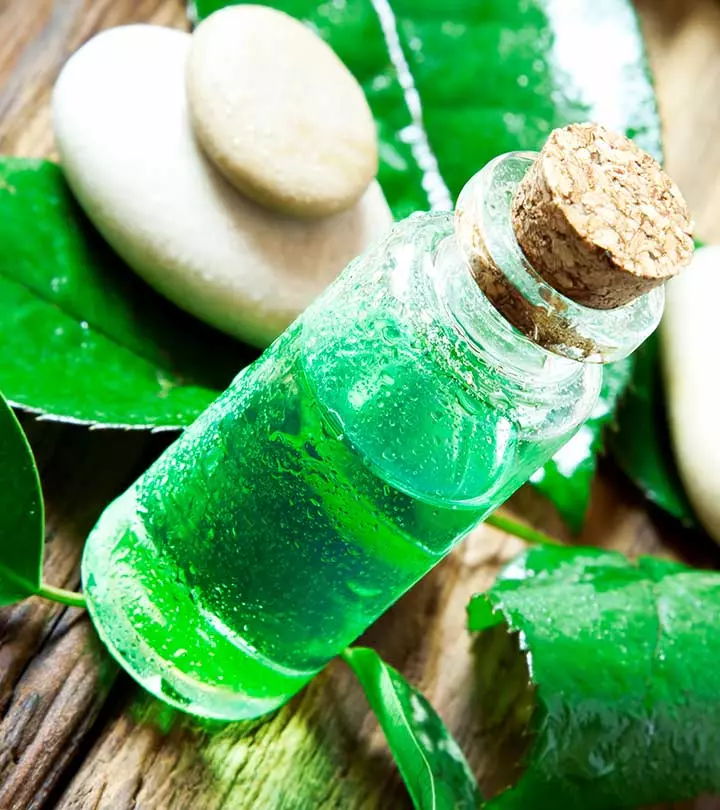
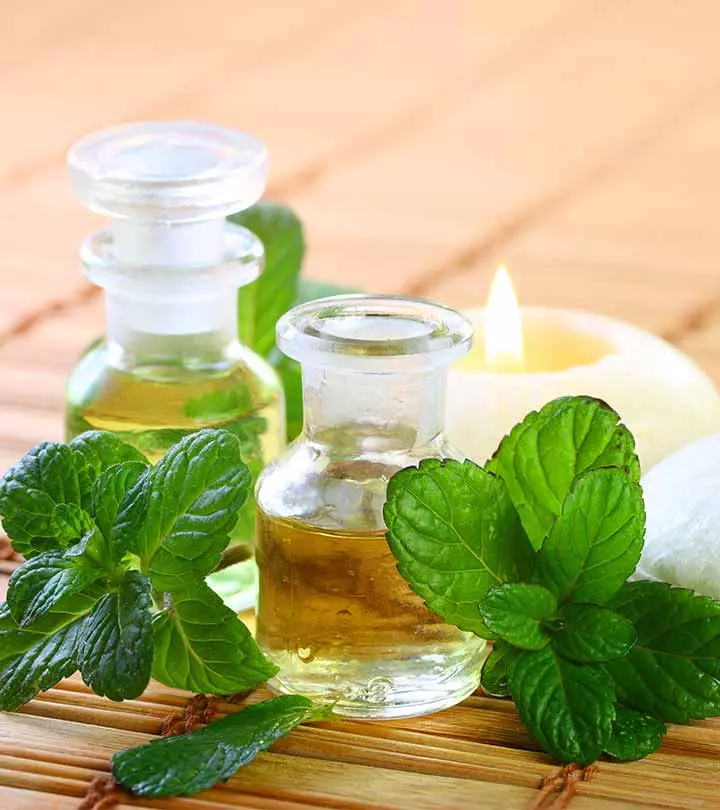


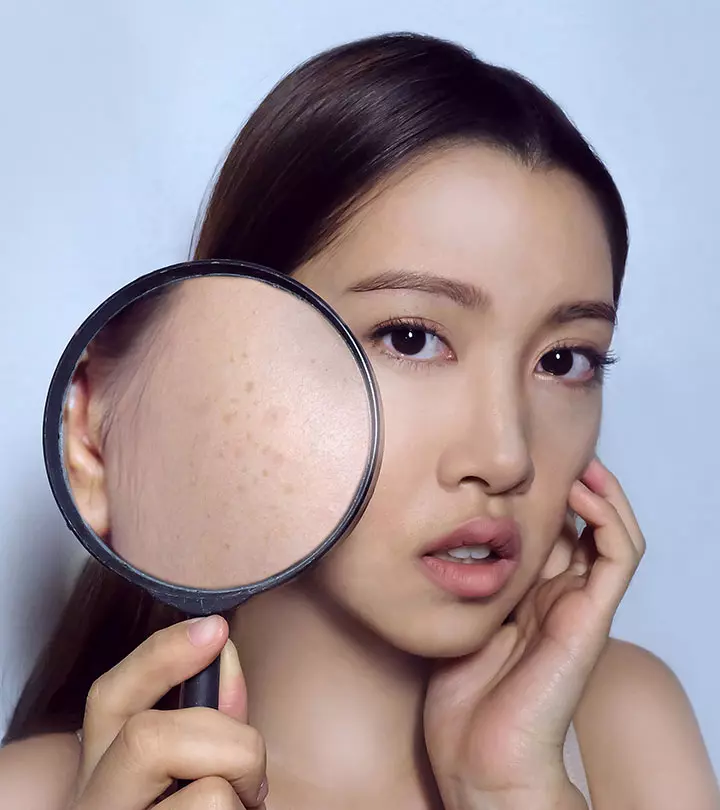
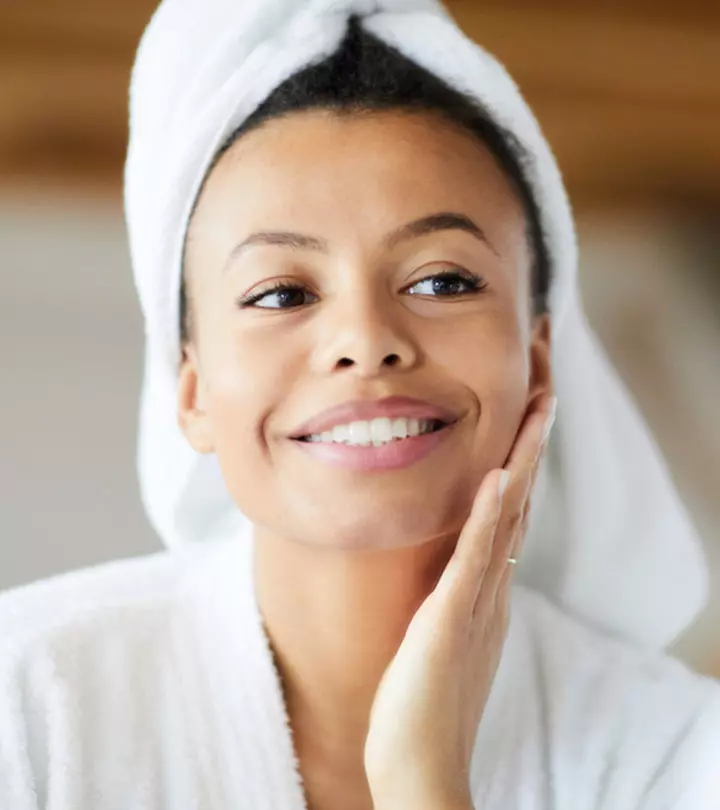
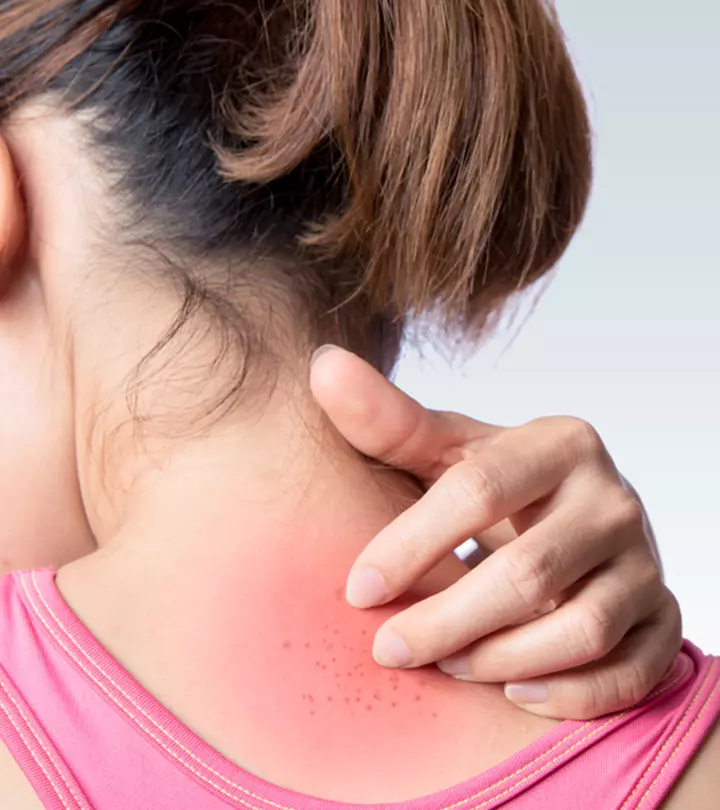
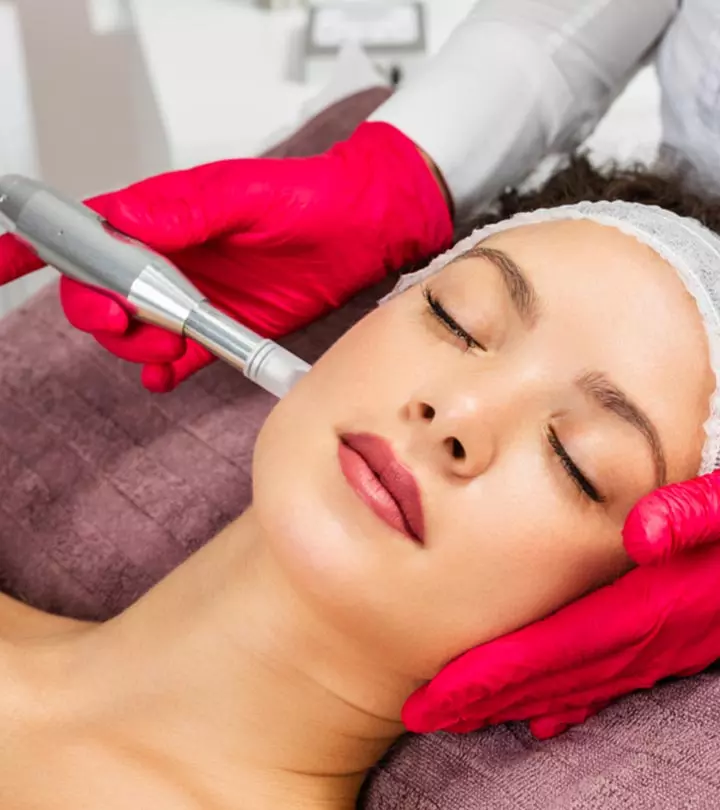

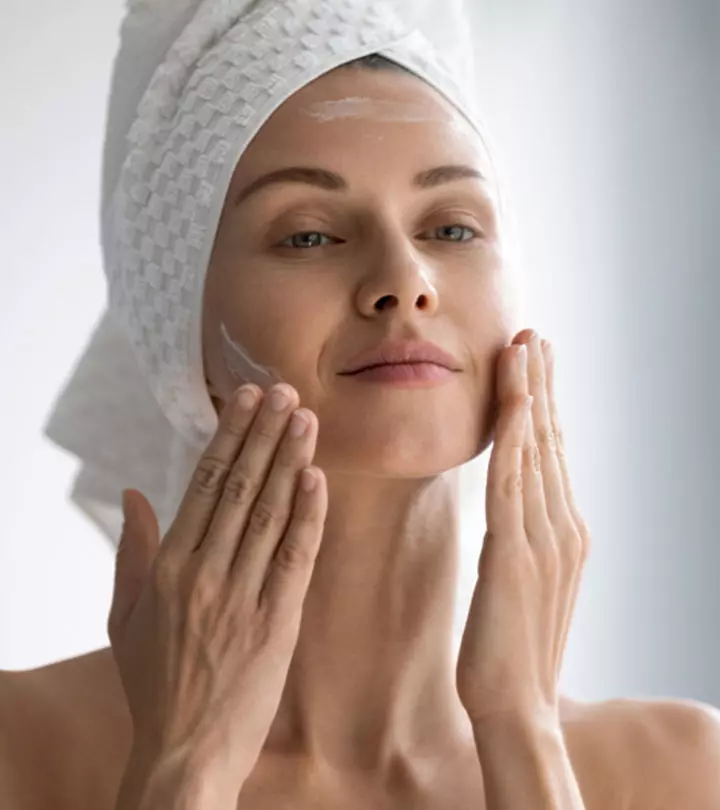
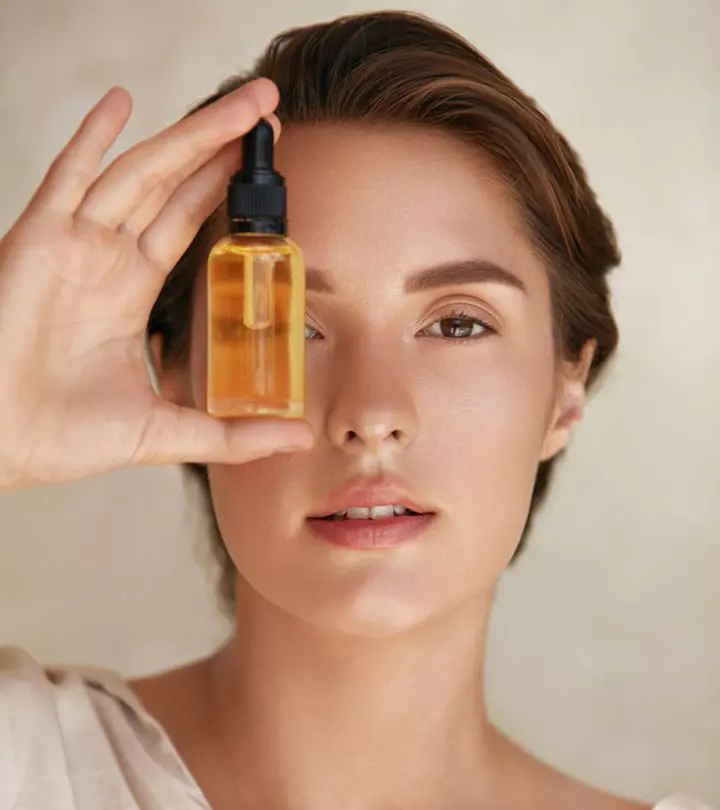
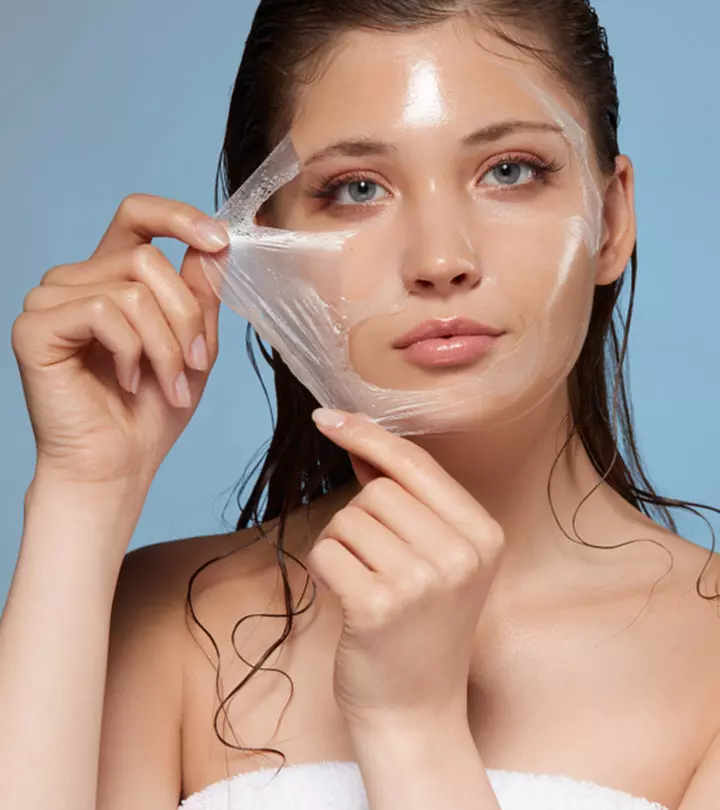
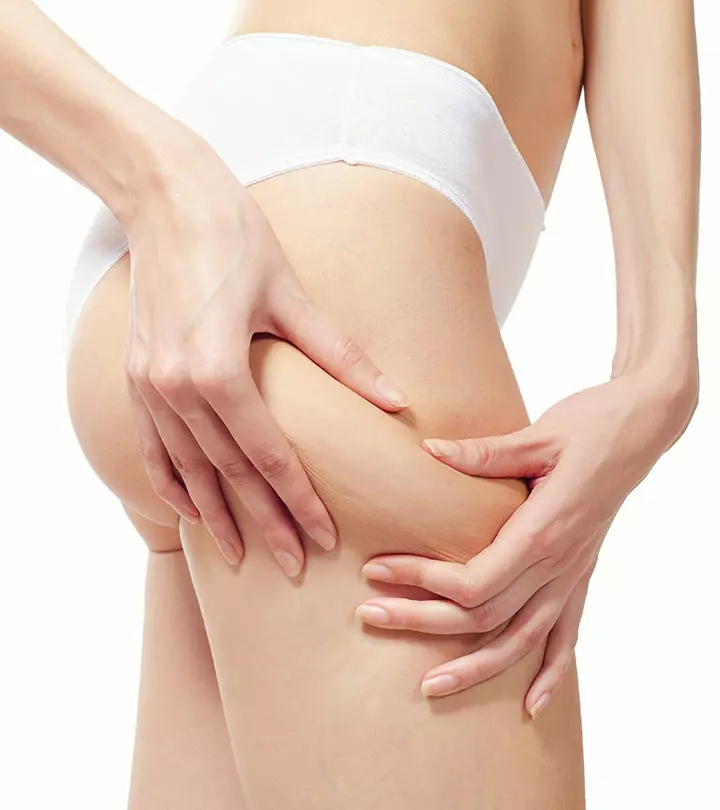
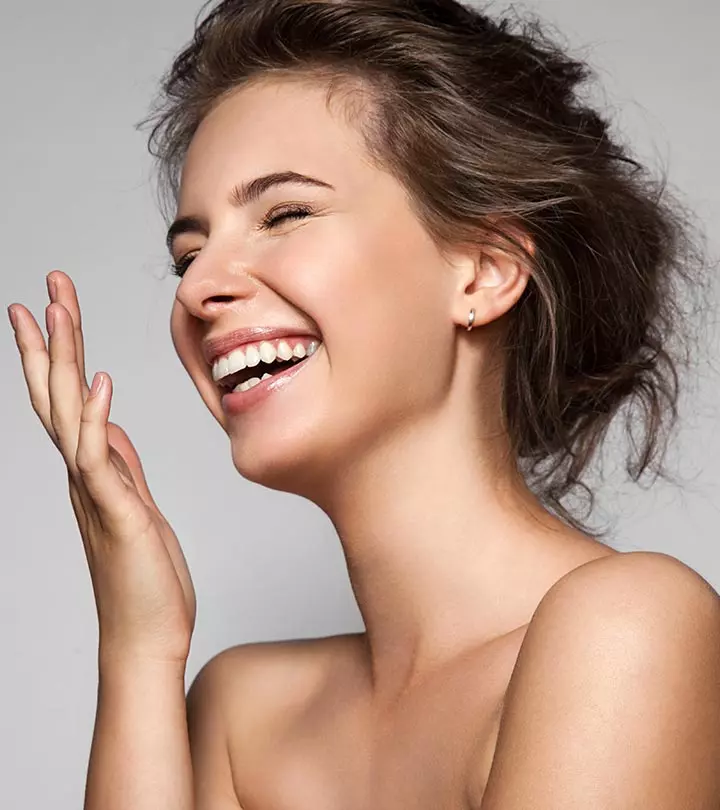
Community Experiences
Join the conversation and become a part of our empowering community! Share your stories, experiences, and insights to connect with other beauty, lifestyle, and health enthusiasts.